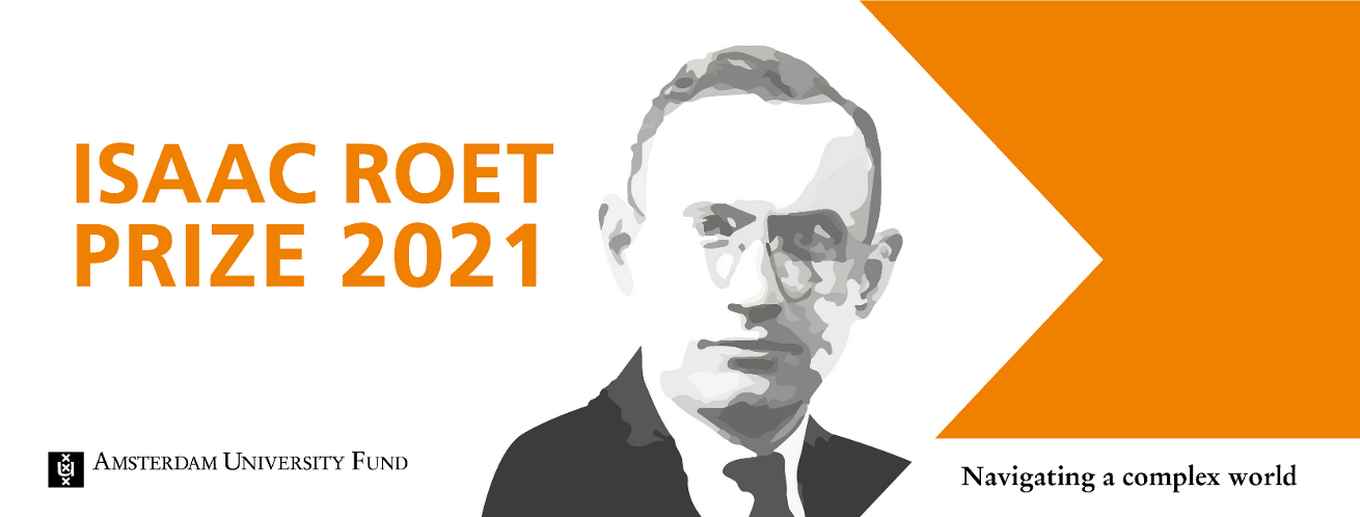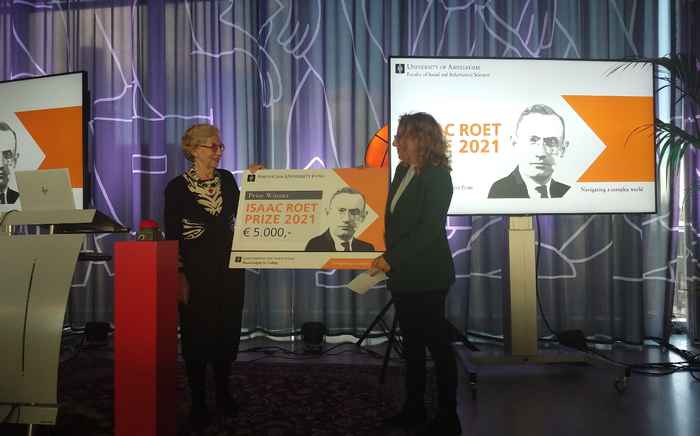Isaac Roet Prize 2021 awarded to project empowering adolescents in local communities
Francesca Ranalli (PhD candidate at the University of Amsterdam), Jade Mandrake (visual artist, poet, and artistic researcher) and Eileen Moyer (Professor in the Anthropology of Ecology, Health and Climate Change) win the Isaac Roet Prize 2021
13 October 2021

‘Children’s neighbourhood places tend to reflect values and space production of adults, but children’s spatial perception is important for their emotional development and the use of those places’, state the winners of the Isaac Roet Prize 2021. ‘This is even more significant for adolescents. While the private space of the home as a place of seclusion, familiarity, security, and expression of identity contextualizes many leisure activities, public spaces and the local community can play a role in helping adolescents feel safe and express themselves, especially where the family environment may discourage it.’

With support from the Isaac Roet Fund Francesca Ranalli (PhD candidate at the University of Amsterdam), Jade Mandrake (visual artist, poet, and artistic researcher) and Eileen Moyer (Professor in the Anthropology of Ecology, Health and Climate Change) hope to connect young people to their local spaces and help them developing a sense of belonging and worth in the community while preventing marginalization and risk of criminalization.
Creating an interactive toolkit
The project called ‘Hacking Urban Boundaries (HUB)’ will introduce an interactive toolkit to build an inclusive and creative environment from the bottom-up. Through engagement with nature and artmaking in a series of workshops, youth will build their own safe spaces, develop their own voice in relation to their local urban environments and learn to design a realizable project within the provided budget. The toolkit is open-ended and replicable for use in changing peri/urban areas around the globe.
The toolkit will be first introduced in two pilot contexts: Almere Poort, the Netherlands, and the South Bronx, NYC, and second, in Amsterdam West, Brooklyn, and Johannesburg, South Africa. In each site a core group of 10-15 young people will temporarily reclaim local green spaces and create works of art of different kinds (e.g., musical performances, murals, theatre). While every group will have its focus rooted in the local, they will learn from exchanges with their global counterparts through a virtual platform.
About Isaac Roet
Isaac Roet was an alumnus of the Municipal University (Gemeente Universiteit), which was later to become the University of Amsterdam, and was a registered accountant as well as an inventor. On 3 June 1927, he recorded in his will that one-fifth of his estate should be used for a contest aimed at ‘fostering world peace and a more efficient distribution’. Isaac was murdered in Auschwitz on 11 February 1944.
Isaac’s will come into effect after the war and the municipality of Amsterdam received a sum of 10,000 guilders, on the condition that the university would allocate it to the prize. The estate was later transferred to the Amsterdam University Fund (AUF) and was converted into a separate fund: the Isaac Roet Fund. The Isaac Roet Prize was awarded for the first time in 1989, in the Peace Palace in The Hague.
Together with the Faculty of Social and Behavioural Sciences, the AUF endeavours to award the Isaac Roet Prize every year to a special project that contributes to a better world.